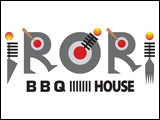Manitoba Pork Council reports an excellent response among the province’s pork producers to a research project aimed at identifying the most effective strategies for preventing PRRS outbreaks.
Porcine Reproductive and Respiratory Syndrome is considered the most costly animal health issue facing North American pork producers today.
Manitoba Pork Council, in partnership with the Canadian Swine Health Board, will conduct PRRS testing at 85 sites in Manitoba and the biosecurity practices at each site will be assessed.
Manitoba Pork Council animal care specialist Mark Fynn says the information will be used to develop strategies for controlling and eliminating PRRS in Manitoba as well as the Canadian swine herd as a whole.
The testing is being done by the herd vets who have also received training as trainers for the National Biosecurity Training Program.
They’ll go on farm and collect bloods from eligible sites and then they’ll submit those bloods for the PRRS virus to get an idea of what practices are out there that help in preventing PRRS from getting on farm and also what practices are out there that need changing to help prevent PRRS.
As far as eligibility, you need to be on CQA and you need to have participated or been trained in the National Biosecurity Training Program but not yet received any funding for PRRS testing and diagnostics.
As far as time frames go, we expect this testing to be wrapped up by the end of the year, so the end of December so that we have enough time to perform that analysis looking at the biosecurity practices and the PRRS statuses on farm.
Fynn says participants will take part in an on-farm biosecurity presentation put on by their herd vet, conduct a self assessment of the biosecurity practices on their site and have their site assessed by their herd vet, at which point blood samples will be collected.
He says 75 sites have already committed to participate and there is still room for ten to 15 more.



